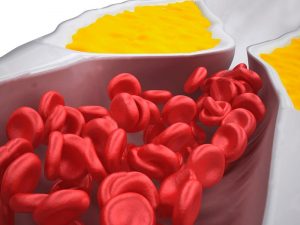What is the Definition of a Sweetener?
A sweetener in its loosest sense is any table sugar (sucrose) substitute, but it is important to note that these substances are divided into two main groups with differing properties.
- Nutritive Sweeteners: Also known as just sugars or caloric sweeteners, this group provides energy to the body through carbohydrates. These calories offer no nutritional value and therefore are seen as empty calories. It is for the reason that people who are dieting or have health issues that are/have been exacerbated by sugar turn to non-nutritive sweeteners (artificial sweeteners). Nutritives are naturally occuring in some foods, such as fructose in fresh fruit. Unlike sugar that is added during food preparation, natural sugars are balanced out by the other nutrients in the fruit.
- Non-Nutritive Sweeteners: These artificial sweeteners are zero-or low-calorie synthetic sugar substitutes. They are sometimes referenced as high-intensity sweeteners, as they can be up to 100 times more intense than regular sugar. Because of their make-up, non-nutritives cannot be broken down or digested by the body and thus don’t add calories. It is important to note, however, that foods that use sugar additives are often high in calories with low nutritional value and therefore weight loss is not inevitable. A nutritional and well balanced diet is paramount to maintain overall health.
FDA-Approved Sweeteners
The U.S. Food and Drug Administration (FDA) has tested and approved six different artificial/non-nutritive sweeteners:
- Acesulfame potassium (also called acesulfame K): Commonly combined with other non-nutritives and can be found in most sugar-free sodas.
- Aspartame: The epitome of a high-intensity substitute, this is about 200 times sweeter than regular sugar. It can be used as a table-top sweetener but is also found in an array of foods such as cereal, gelatin desserts, sugar-free gum, diet soda and many more. A very versatile substance, aspartame is found in vitamin supplements and laxatives.
- Saccharin: Discovered in the late 1800s, this is the oldest artificial sugar substitute on the market. Saccharin can be up to 700 times sweeter than regular table sugar.
- Sucralose: Six hundred times as sweet as sugar, it is a chemical derivative of sucrose and can be used as a standalone table-top sweetener. Sucralose is used in a diverse group of products, including baked goods, beverages and dairy products.
- Neotame: The least common of the substitutes, neotame is 7000 to 13,000 times sweeter than sugar. Its properties are derivatives of amino acids phenylalanine and aspartic acid.
- Advantame: A general purpose sugar substitute and flavor enhancer, it is 20,000 times sweeter than table-top sugar.
Natural Sweeteners: a Review
Natural may seem interchangeable with the term healthy but natural substitutes still undergo a refining process and should be used in moderation. The vitamin and mineral content in these products is actually very similar to that of table-top sugar. The FDA recognizes fruit juice/nectars, honey, molasses and maple syrup as safe natural sugar substitutes. As with artificial alternatives, these products can be added to foods during or after preparation. As with sugar, health risks include tooth decay, weight gain, increased triglycerides and poor nutrition.
Sweeteners and Obesity
One of the benefits of using sugar substitutes is to aid in weight loss, but some studies have shown them having the opposite effect. Some doctors believe that sweeteners cause weight gain, not due to their synthetic properties but because of a rewiring of the brain. The research suggests there is a disassociation with sweetness and caloric intake, resulting in an increased craving. This is highlighted in the San Antonio Heart Study where those who drank more than 21 diet drinks a week were twice as likely to become overweight or obese as people who didn’t drink diet soda.
Are Sweeteners Safe?
As with any artificial substance, it is important to know if artificial substitutes are safe, but the answer is not so black and white. The FDA tested and ruled out any serious sweetener dangers for the approved list, such as cancer. These studies were performed using small amounts of soda for the samples, rather than the 24 ounces that many diet-soda drinkers are consuming daily. It remains to be seen what the long-term implications could be over many years. Cancer is not the only health concern to rule out. In the Multi-Ethnic Study of Atherosclerosis (MESA), those who consumed diet drinks daily showed an increase in health risks, with a 36 per cent greater risk for metabolic syndrome and a 67 per cent increased risk for type 2 diabetes. Additionally sweeteners can act as diuretics. When prescribed, diuretics are used to reduce fluid in your blood vessels to lower blood pressure, by increasing the amount of water excreted by the body. Sugar substitutes in some cases can promote this occurrence as a result of bladder irritation.
Sweeteners and Depression
One of the FDA-approved artificial sugar substitutes, aspartame, has been under review by scientists who have found in their studies there is a possible link between depression and the product. In fact, an institutional review board halted one of the studies due to the severity of patient reactions. A crossover study tested the effects again, adding a placebo to the mix and discovered there was a significant difference in the severity of symptoms. It was concluded that those with mood disorders were highly sensitive to artificial substitutes and should avoid them.











